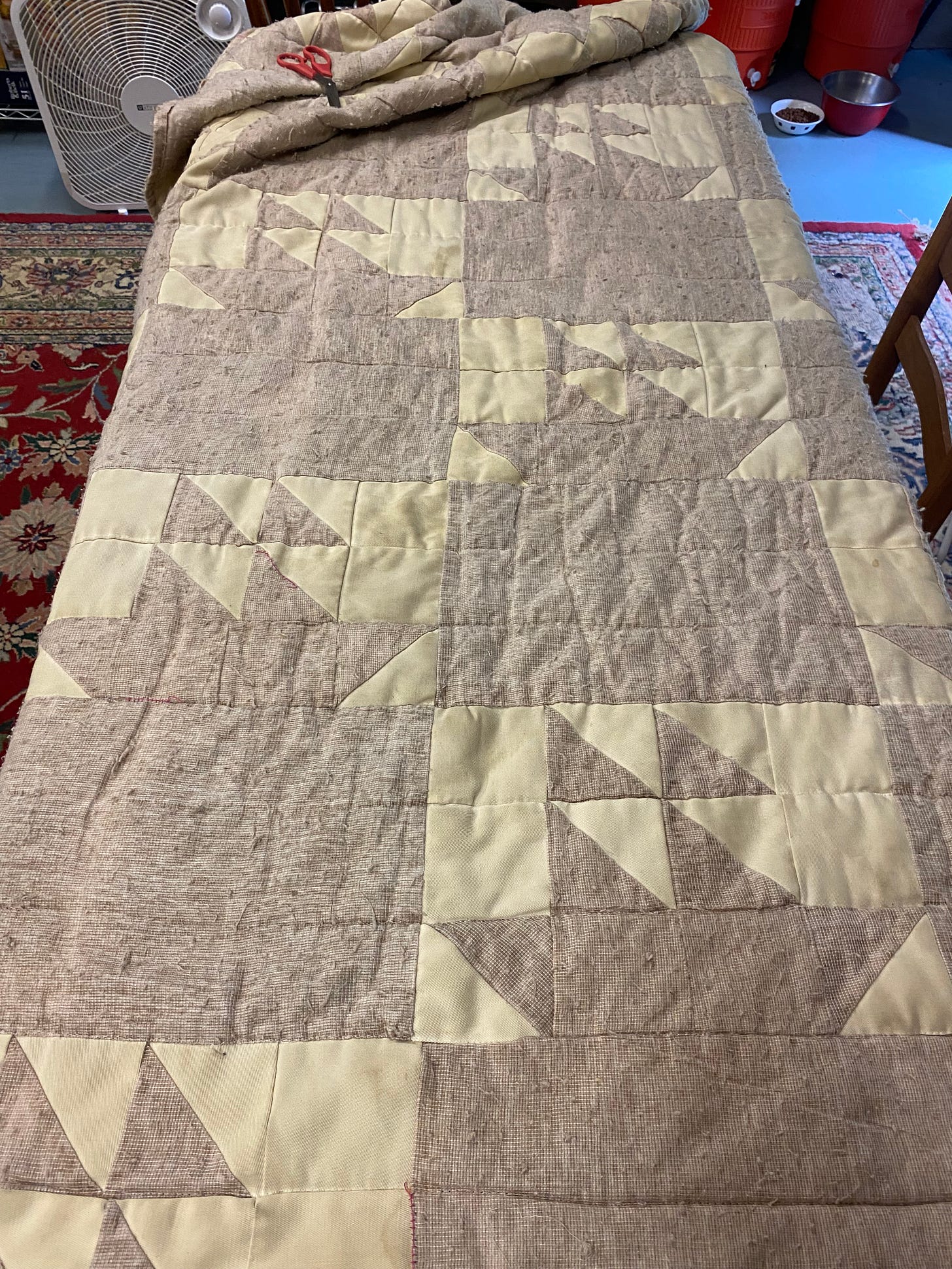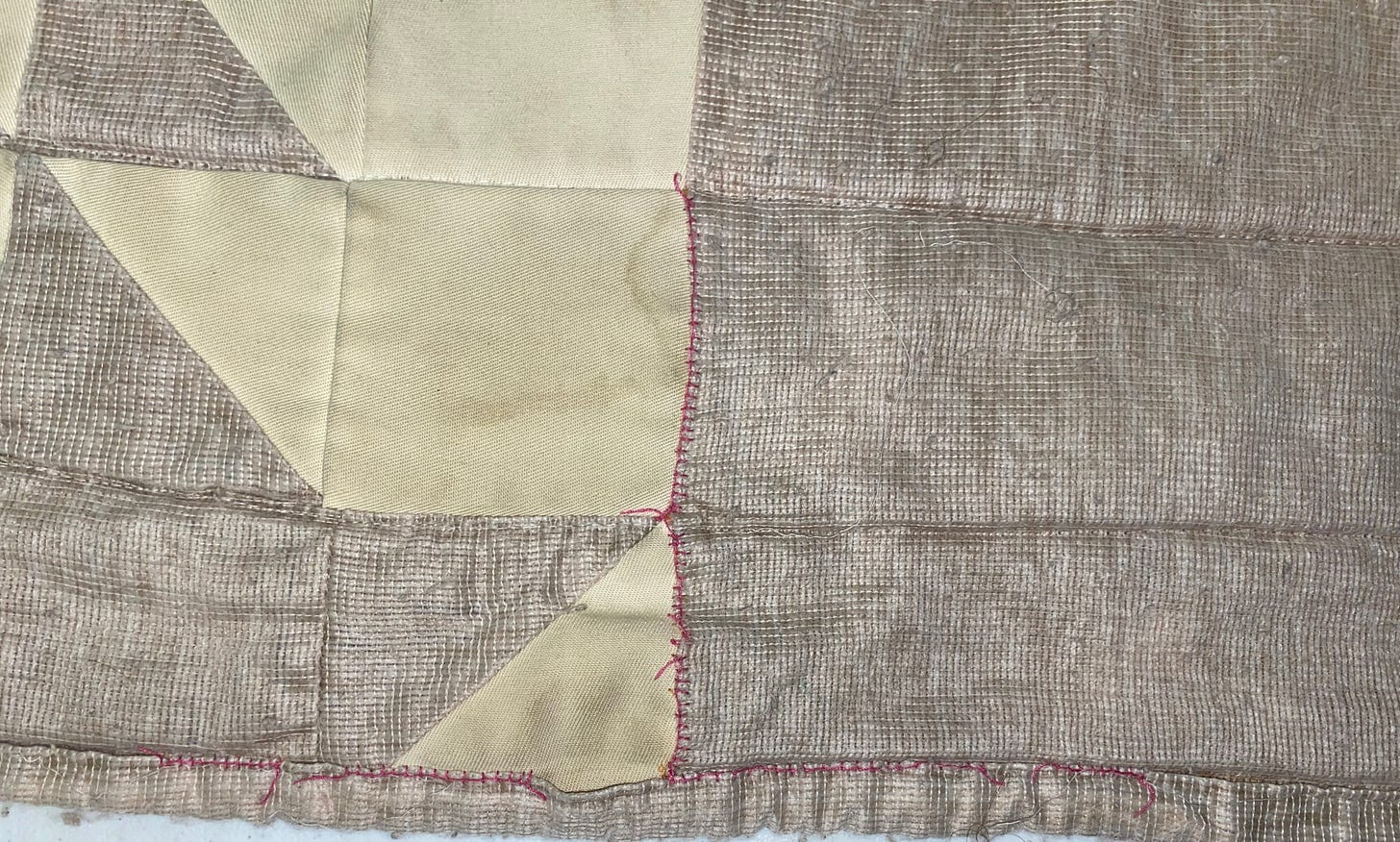Ma Barker, my maternal grandmother, was no stranger to hard times. She was a baby during the Great Depression, and she quit school after the 3rd grade to help raise her younger brothers and sisters. She married my grandfather when she was a young woman, and they had eleven children. My grandfather was notoriously abusive to Ma Barker and their children, but he died when my mom was nine. I never knew him.
I didn’t know Ma Barker to smile often. She was the epitome of Appalachian woman and hardscrabble life. I remember complaining to her one day about some small, particular thing in my life that wasn’t going well, and her response to me was, “You don’t know bad, boy.” She was right. I didn’t know bad.
I remember once, when I was about ten, I wore a pair of blue jeans to her house with holes in the knees. This was not going to work for Ma Barker. I had to take my britches off, and sit on the couch in my underwear while she patched the knee-holes. I never made that mistake again.
I was fascinated with Ma Barker’s sewing machine. She had an old Singer machine with a pedal, and the noise it made when she pedaled was hypnotic. But it wasn’t just the noise. There was something about the turning of the wheels, the ever-forward motion of the fabric beneath the needle and thread, the congruent movement of spindles and bobbins, along with the pedaling in time of Ma Barker’s feet — it was music! I could get lost in the rhythm of that old sewing machine.
At some point in time, probably long before I was born, Ma Barker made the feed sack quilt in the photo above. The brown pieces of cloth are the pieces that came from feed sacks, and the white pieces came from other, thicker material that Ma Barker had on hand. At some juncture, this quilt was given to me. When it came into my possession, it was falling apart, and I had to decide whether I could save it. This was during my traveling days, and I didn’t have extra money to spend on anything at all. Moreover, I actually needed this quilt to go on my bed. I decided to repair it with hand stitches of my own to extend its life, and I did this with the only thread I had at the time — pink.
Somehow, this feels fitting to me — a pink thread running through a brown feed sack quilt. I am the rainbow sheep in my family tree. I have been the LGBTQ+ outcast, and although Ma Barker died long ago, I have felt her guiding me through the rough patches of my life. She knew what it felt like to be outcast, too. She knew that I would need her ancestral guidance.
I guess all of this is to say, thank you, Ma Barker. The lessons you taught me about life have gotten me to where I am today, and I love you. May your memory ever be honored.





